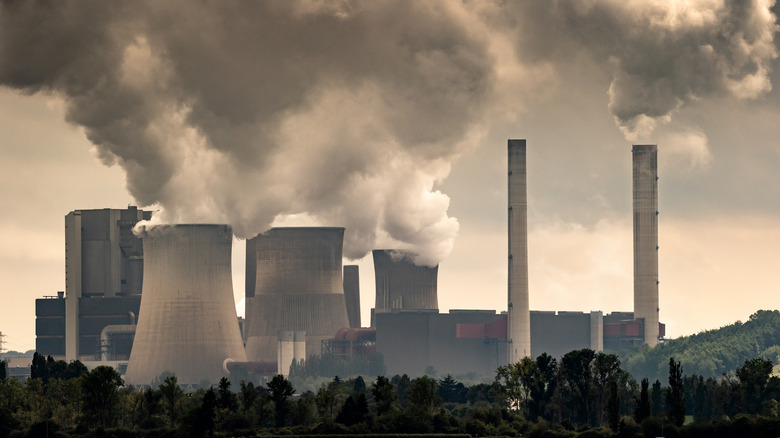The Impact Of Pollution Is More Fatal Than You Think
Automobile exhaust, the burning of fossil fuels, and the manufacturing of chemicals are all causes of air pollution attributed to humans (via National Institute of Environmental Health Sciences). Combined with natural sources of pollution such as wildfire smoke or volcanic gases, all of these elements can present dangers to our health. Experts are concerned that air pollution may be linked to the development of certain health conditions such as cancer, birth complications, heart disease, respiratory illness, as well as immune and neurological disorders, amongst others. In addition to the air we breathe, we can also come in contact with pollution through water or chemical exposure, as reported by NBC News.
Aside from health risks, two new studies have found that in recent years, pollution now accounts for more premature deaths around the world than those from war, HIV, or substance use (via NBC News). Taking into account all forms of pollution, the first study, published in The Lancet Planetary Health, showed little improvement in the number of pollution-related premature deaths worldwide compared to the last report issued in 2015. As of 2019, this number remains steady at 9 million deaths annually — the same as it was in 2015 – primarily impacting low and middle-income countries such as India, China, and Pakistan (via NBC News).
How clean energy could potentially save lives
In a second study published in Advancing Earth and Space Science, researchers focused on how different energy solutions could potentially curb death rates from pollution. It was estimated that by doing away with emissions such as sulfur and nitrogen oxides from energy-related sources in exchange for sources of clean energy, over 53,000 premature deaths could be prevented annually in the U.S. (per NBC News).
While further large-scale policy shifts are still urgently needed, experts say individuals can take steps to protect themselves against the harmful effects of pollution (via NBC News). Associate professor of environmental health sciences at the University of Massachusetts Amherst Richard Peltier spoke with NBC News suggesting individuals utilize air filters in their homes and remain indoors on days when air quality is low. In addition, wearing an N95 mask can offer protection against natural sources of pollution, such as smoke from wildfires.


